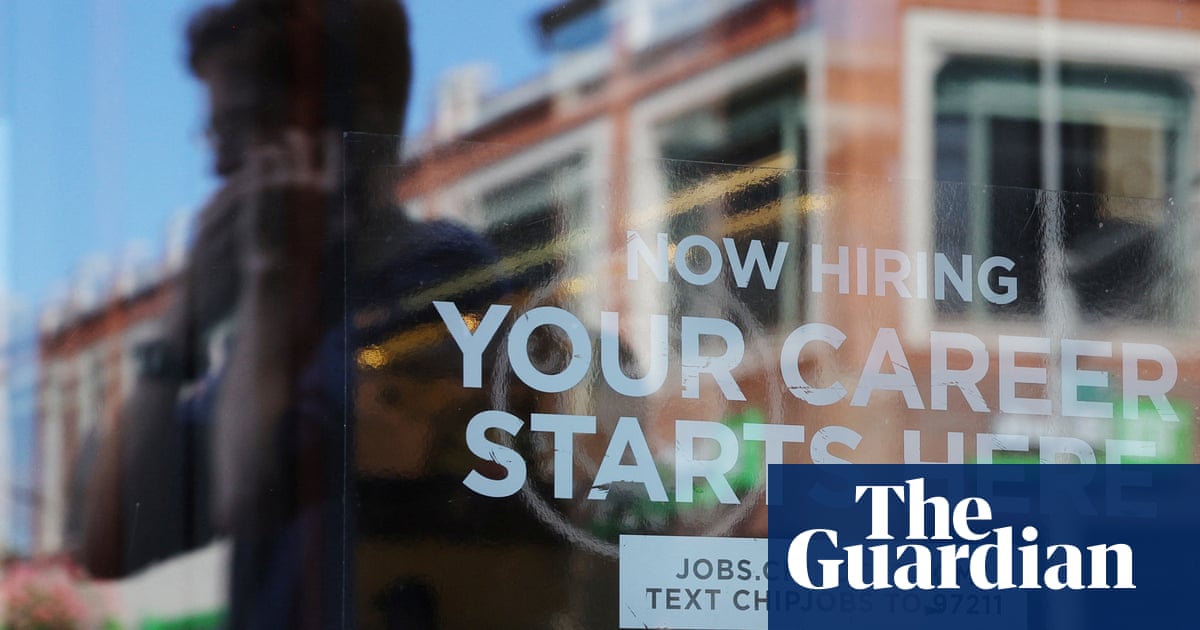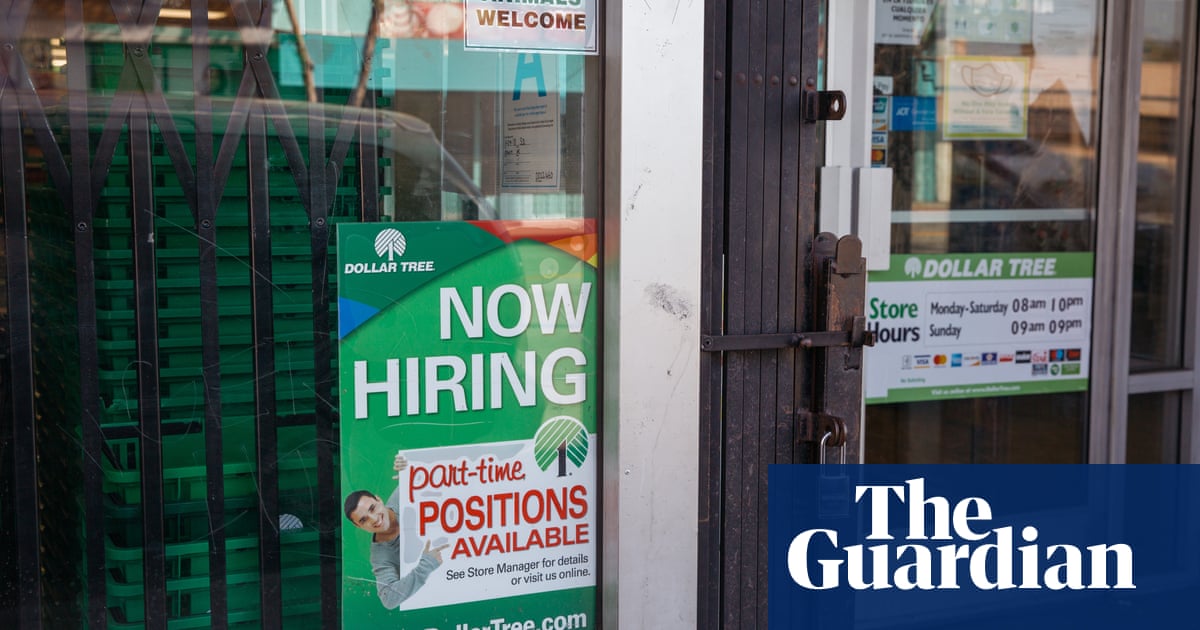
The US economy added back 49,000 jobs last month as coronavirus restrictions eased and fiscal stimulus from Washington goosed up the economy, the labor department announced on Friday.
The unemployment rate dropped to 6.3%, down significantly from its pandemic high of 14.7% in April. While January’s figure marked a return to growth after job losses in December, the number was weak and big problems remain.
On Thursday, the labor department said 779,000 people filed new unemployment claims last week, down from the week before but still close to four times pre-pandemic levels. The latest figures showed some 17.8 million Americans are still claiming unemployment benefits.
In December the US lost 140,000 jobs as the latest wave of Covid-19 infections led to more shutdowns across the country and a slowdown in economic activity. That figure was revised to a loss of 227,000 jobs on Friday.
Professional and business services (up 97,000 jobs) and local government (up 49,000) saw the largest gains over the month. The US is still losing huge numbers of jobs in leisure and hospitality (down 61,000) and retail (down 38,000) and the stark gap in racial unemployment rates remains.
The unemployment rate for white Americans was 6% while for Black Americans it was 9.2% and for Latinos it was 8.6%.
The jobs figure come as the Biden administration is trying to push through a $1.9tn stimulus package which would send $1,400 cheques to many Americans and provide fresh aid for struggling businesses. It would also increase the federal minimum wage from $7.25 to $15 – the first increase since 2009.
The plan has widespread support from voters, with a Quinnipiac survey showing more than two-thirds of respondents in favor of the plan. But it has met with opposition from Republicans in Congress, who have balked at the size of the stimulus and proposed a far smaller package. Biden’s plan was approved in the Senate early Friday by a 51 to 50 vote, with the vice-president casting the tie-breaking vote, but still faces hurdles and is not expected to become law before mid March.
The recovery in the jobs market may embolden opponents but some economists warned that the economic toll of the virus is far from over.
Jason Reed, assistant chair of finance at the University of Notre Dame’s Mendoza College of Business, said: “We shouldn’t forget that the economy is still down about 10m jobs since the start of the pandemic. We aren’t anywhere close to where we were this time last year.
“The rollout of the vaccine will surely help Americans get back to work, but we shouldn’t expect a return to normal until late 2021 or early 2022.”












